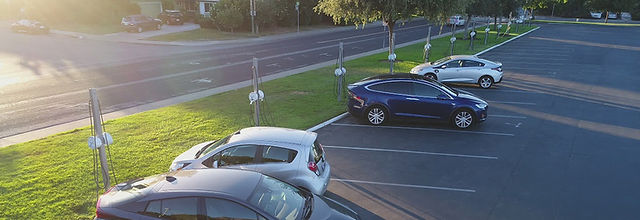IEEE 1547
This standard provides the technical specifications for, and testing of, the interconnection and interoperability between utility electric power systems (EPSs) and distributed energy resources (DERs). It provides requirements relevant to the performance, operation, testing, safety considerations, and maintenance of the interconnection. It also includes general requirements, response to abnormal conditions, power quality, islanding, and test specifications and requirements for design, production, installation evaluation, commissioning, and periodic tests. It further requires that all DERs are able to communicate via one of the following standards: IEEE 2030.5, IEEE 1815 or Sunspec Modbus.
IEEE 1547.1
This standard specifies the type, production, and commissioning tests that shall be performed to demonstrate that the interconnection functions and equipment of the distributed resources (DR) conform to IEEE 1547.
IEEE 2030.5
This standard defines an application profile which provides an interface between the smart grid and users. It enables management of the end user energy environment, including demand response, load control, price communication, distributed generation, energy storage, and electric vehicles as well as the support of additional commodities including water, natural gas, and steam. This standard defines the mechanisms for exchanging application messages, the exact messages exchanged including error messages, and the security features used to protect the application messages. Formerly referred to as Smart Energy Protocol (SEP 2.0).
IEEE 1815
This standard describes the methods and protocols for Electric Power Systems (EPS) communications using the Distributed Network Protocol (DNP3).
Sunspec Modbus
SunSpec Modbus is an open standard, referenced in IEEE 1547-2018, that enables interoperability amongst DER system components.
CSIP
Common Smart Inverter Profile is a standard which further refines IEEE 2030.5 for application to smart inverters. It was developed to support California Rule 21 which requires that Distributed Energy Resources within Investor Owned Utilities (IOU) must utilize the IEEE™ 2030.5-2018 networking standard in a commonly agreed-upon manner for any grid-connected inverter. The standard is developed and maintained by the SunSpec Alliance which also specifies test and certification procedures for devices which implement the standard.
UL 1741
UL 1741 SA is a product safety standard that lays out the manufacturing (including software) and product testing requirements with the goal of producing inverters more capable of riding through grid excursions or even actively managing grid reliability functions. Its test suite covers Anti-islanding, Low/High Voltage Ride Through, Low/High-Frequency Ride Through, Must Trip Test, Ramp Rate (Normal & Soft-Start), Specified Power Factor, Volt/Var Mode, Frequency Watt, and Volt Watt behaviors.
SAE J1772
A North American standard for electrical connectors for electric vehicles which covers the general physical, electrical, communication protocol, and performance requirements for the electric vehicle conductive charge system and coupler. The intent is to define a common electric vehicle conductive charging system architecture including operational requirements and the functional and dimensional requirements for the vehicle inlet and mating connector. This standard has been adopted broadly across North America and European Union (where it is published as IEC 62196) by all light duty vehicle manufacturers with the exception of Tesla.
UL 2251
This standard’s requirements cover testing of plugs, receptacles, vehicle inlets, and connectors rated up to 800 amperes and up to 600 volts AC or DC, and intended for conductive connection systems, for use with electric vehicles in accordance with National Electrical Code (NEC), ANSI/NFPA-70 for either indoor or outdoor non-hazardous locations. The tests outlined in the standards are used to verify equipment load rating and the standard directly references SAE J-1772.
SAE J3072
This standard establishes interconnection requirements for a utility-interactive inverter system which is integrated into a plug-in electric vehicle (PEV) and connects in parallel with an electric power system (EPS) by way of conductively-coupled, electric vehicle supply equipment (EVSE). This standard also defines the communication between the PEV and the EVSE required for the PEV onboard inverter to be configured and authorized by the EVSE for discharging at a site. The requirements are intended to be used in conjunction with IEEE 1547 and IEEE 1547.1.
ISO 15118
The international (European) standard which defines a vehicle to grid (V2G) communication interface for bi-directional charging/discharging of electric vehicles. The standard includes vehicle credentialing and a robust set of security requirements which are intended to verify and validate actors in the V2G value chain. The standard provides the Plug & Charge feature that is used by some electric vehicle networks although the advanced Public/Private Key Infrastructure (PKI) envisioned by the authors of the standard has been slow to deploy and no agreed certificate authority currently exists internationally.
OCPP
Open Charge Point Protocol is a standard for communications between charge stations (EVSE) and charge stations management platforms. It defines the messages for authorization, session management (start/stop) and metrology and may also be used to manage EV charging load if supported by both charge station and management systems. Future versions of the protocol (2.0 and beyond) intend to fully specify vehicle charging use cases and provide advanced capabilities for financial transaction processing, display screen controls and V2G use cases.
OCPI
Open Charge Point Interface is a standard for interoperability which enables roaming between disparate charge station networks. The protocol define use cases for publishing charge station static information including location and price, dynamic information such as station status and historic information such as charge session records which are subsequently used for payment settlement between networks. The protocol is implemented between pairs of charge station network partners who establish bilateral agreements to enable interoperability.
OpenADR
OpenADR (Open Automated Demand Response) is an open, secure, two-way information exchange model and Smart Grid standard. OpenADR standardizes the message format used for Auto-DR and DER management so that dynamic price and reliability signals can be exchanged in a uniform and interoperable fashion among utilities, ISOs, and energy management and control systems. It is generally used by utilities and load aggregators to publish demand response (load shed) events which are a form of DER management, but it does not provide many of the grid stability control capabilities inherent in IEEE 2030.5.


